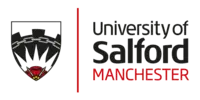

Trilingual teaching and trips abroad
The teaching aims to make students trilingual. ESTIA engineers must be able to operate in a professional context with a command of at least 3 languages: French, English and Spanish.
Courses are organised at the CRL, ESTIA's language resource centre, by teachers from English- and Spanish-speaking countries. The classes are divided into small groups of around fifteen students, according to their level. Students are assessed regularly throughout the year: mock IELTS and TOEIC exams in English, mock SIELE exams in Spanish, mock TFI exams in French for foreign students. Teachers monitor students' progress. The final mark is based on improvement over the semester, marks in oral and written exams, attendance and participation.
ESTIA organises a language course in Bilbao for all first year students. For those who have no knowledge of Spanish, beginners are quickly brought up to speed. On this occasion, students are hosted by one of our co-degree-awarding partners: the Bilbao School of Engineering. In the final year, there are other six-month immersion stays in Cranfield, Salford-Manchester, Wolverhampton, Bilbao, Mondragon and San Sebastian.
ESTIA attaches great importance to its students' language skills, which justifies its 6th place in the Usine Nouvelle ranking of engineering schools for international exposure.
Engineering students can take optional languages. The aim is to enable beginners to discover the basics, intermediate students to perfect their skills, and more experienced students to acquire professional fluency. Each modern language class is defined by level. Teachers of Chinese, Japanese, German, Arabic, Italian, Russian and Basque are available. If you choose to take a third language as part of your course, if you have been assiduous during the term and your results are correct in this course, you will earn a credit. The assessment system at Estia is based on credit points. Subjects are grouped into modules, and credits may be awarded following written examinations or continuous assessment. For more information about the assessment system, click here.
The level of proficiency to be achieved in English is given by a score in IELTS or TOEIC, international diplomas recognised by all companies. The minimum score required at the end of the course to obtain the engineering diploma is 6.5 in IELTS or 800 in TOEIC.
The level of proficiency to be achieved in French as a Foreign Language is given by a score on the TFI.
A second diploma for everyone
In addition to the ESTIA engineering diploma, all students simultaneously prepare for a second European diploma.
The ESTIA generalist engineer is versatile. However, the teaching provided at the school gives us in-depth expertise in a technical field.
In their final year,ESTIA generalist engineers choose a course of study in relation to the university where they will obtain their second degree (British Master's or Spanish Master's).
ESTIA has four long-standing co-degree partners: Cranfield University, the University of Salford-Manchester and the University of Wolverhampton in the UK, as well as the Bilbao School of Engineering in Spain.
More recently, it has opened up new partnerships with the Polytechnic School of Madrid (E): (full-time: Master's degree in mechanics), the University of San Sebastian (E) (alternating "University/Estia": Master's degree in smartgrids: energy generation and distribution systems) and the University of Mondragon (E): Master's degree in Projects and Leadership: project management and innovation management.
Engineering students spend a period of time in the partner country at the beginning of their 3rd year. Some students take part in an annual mobility programme in the 3rd year with the co-graduating partner. The annual mobility, lasting 12 months, is an extension of the stay for the double degree.
Registration fees for the British or Spanish universities are included in the ESTIA tuition fees, which also cover travel and accommodation in Bilbao and the UK.
It's a great opportunity, and what a time saver, to benefit from international tutoring, simultaneous enrolment in a foreign institution and a second degree, accessible at the end of the 3-year course, at a reasonable price from the 1st year of school.





